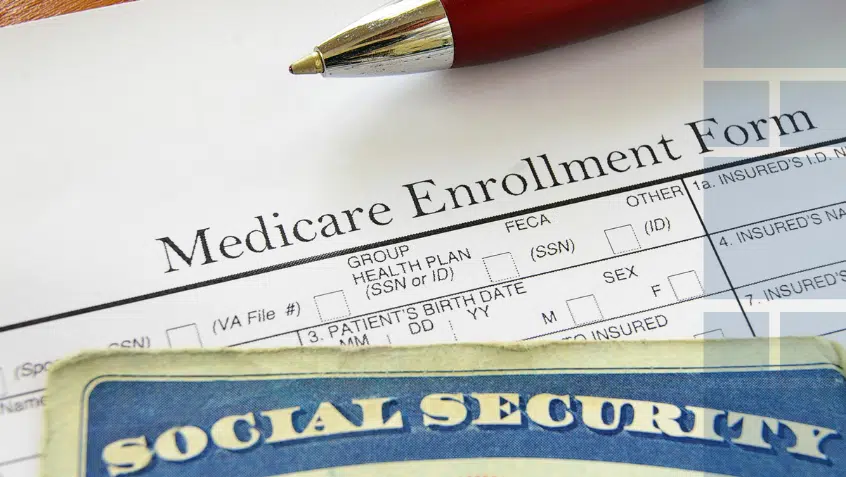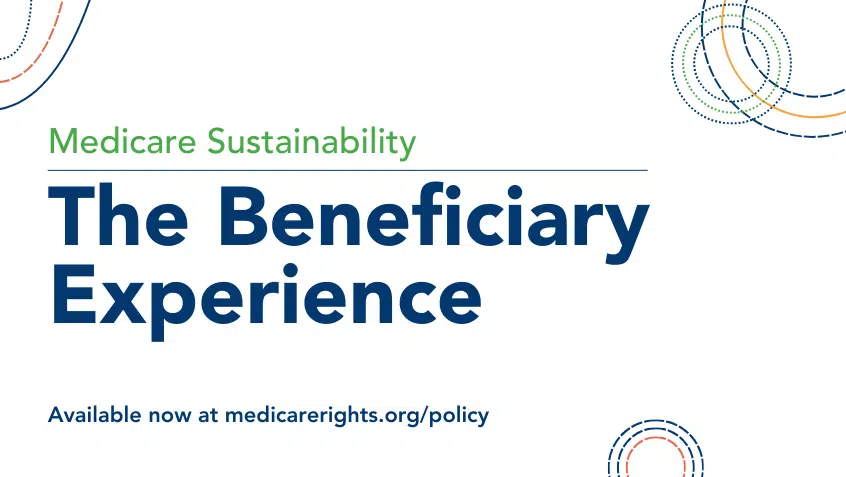Join Us Live for a Discussion on Medicare, Democracy, and the Future of Health Care

As 2017 winds down, there are several smaller pieces of Medicare legislation, often called “Medicare extenders,” that must pass Congress to keep the program stable in 2018. Extenders establish programs for a short time, and have to be passed or funded by Congress every one to two years. Two extenders are particularly important to people with Medicare: the low-income outreach and assistance extender and the therapy cap exception extender. Both extenders will expire in December of 2017 if Congress does not act.
Low-income outreach and assistance
Several programs help people with Medicare afford their Medicare costs, including outpatient care and prescription drugs. For example, Medicare Savings Programs (MSPs) help low-income people with Medicare afford Medicare Part B premiums and, depending on the program, other Medicare cost sharing. Similarly, Extra Help, also called the low-income subsidy (LIS), helps people with a Medicare prescription drug plan (Part D) pay for monthly premiums, annual deductibles, and prescription co-payments. In addition, State Health Insurance Assistance Programs (SHIPs) counsel people with Medicare about Medicare plan options, Medicare communications, and more.
In 2008, Congress passed a bill that provided funding to help organizations assist low-income people with enrollment in these programs—the “low-income outreach and assistance” extender. But this funding must be reauthorized every year. Many people who are eligible for these programs still do not know about them or how to apply, which means they may be going without needed care or spending out-of-pocket and unable to afford their other expenses, like food or rent. Nearly 1.8 million people who are eligible for LIS and over half of those eligible for MSPs are not enrolled in the programs.
Organizations that help people enroll need this funding to continue their valuable work. More people are eligible for Medicare every day, and telling them about the possibility of assistance with their costs will continue to be very important. For this reason, Medicare Rights supports extending outreach funding in the short term, and, in the future, making an increased amount of funding permanently available for these vital services.
Therapy caps exceptions
Currently, a person with Medicare can receive only a limited amount of physical, occupational, and speech language therapy per year. In 2017, this limit is $1,980 for any combination of physical therapy (PT) and speech-language pathology (SLP) services, and $1,980 for occupational therapy (OT) services.
However, there are exceptions to this hard cap. In 2006, Congress passed a temporary measure that enabled people with Medicare to request an exception to the limit if they have a demonstrated medical need for continued services. This created the “therapy cap exceptions” extender.
Allowing exceptions to the therapy cap is important because it ensure access to critical, medically necessary therapies that allow people with Medicare to live with independence and dignity in their homes and communities. Without these therapies, people may have to go without care and may fail to recover from injury, decline more rapidly, or suffer more pain and impaired function. Medicare Rights supports either an extension of the current therapy cap exceptions process or a repeal of the therapy cap, which itself creates an arbitrary barrier to needed care.
We cannot increase costs for people with Medicare
Congress traditionally chooses to pay for health care extenders by finding savings in other health care programs. However, it is important that the Medicare extenders identified here are not paid for by increasing costs for people with Medicare, putting their access to care at risk, or making their economic situation worse.
Half of all Medicare beneficiaries live on annual incomes of $26,200 or less. One quarter live on $15,250 or less. And Medicare households already spend a much higher percentage of their incomes on health care costs, up to three times more than non-Medicare households. This means that most people with Medicare simply cannot afford to pay more for health care. They may have to skip needed care if their costs go up.
Visit www.shiptacenter.org to find your local SHIP.
Visit Medicare Interactive to learn more about the Medicare Savings Program and Extra Help.
Show Comments
We welcome thoughtful, respectful discussion on our website. To maintain a safe and constructive environment, comments that include profanity or violent, threatening language will be hidden. We may ban commentors who repeatedly cross these guidelines.
Help Us Protect & Strengthen Medicare.
Donate today and make a lasting impact.
The Latest
Most Read
Add Medicare to Your Inbox
Sign up to receive Medicare news, policy developments, and other useful updates from the Medicare Rights.
View this profile on InstagramMedicare Rights Center (@medicarerights) • Instagram photos and videos









